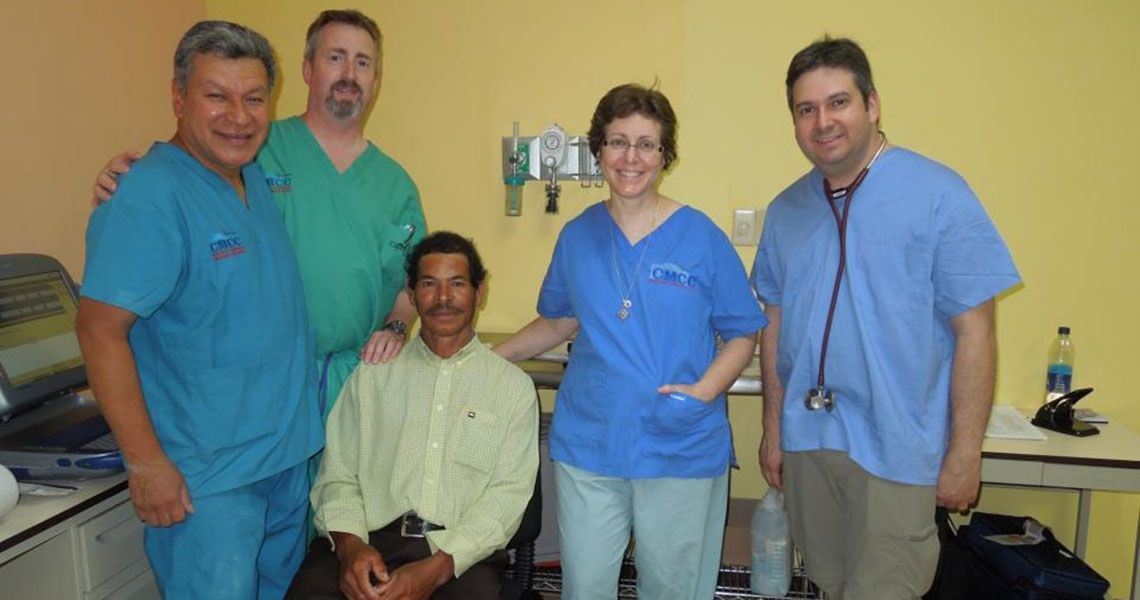A young Honduran boy who suffers from cystic fibrosis can breathe easy today thanks to a donation from the George Washington University Hospital and the efforts of Cynthia Tracy, M.D., professor of medicine at the GW School of Medicine and Health Sciences and associate director of the Division of Cardiology with The GW Medical Faculty Associates.
“This boy can’t breathe without his medication, and he was running out of it,” said Tracy. “The George Washington University Hospital donated a year’s worth of medication and disposable supplies that he needs to do his breathing treatments.”
For the third year in a row, Tracy and her team of cardiologists from the GW Heart & Vascular Institute traveled to the city of Comayagua, Honduras to bring specialized cardiac care to people in need. During the two-week medical mission, sponsored by the GW Heart & Vascular Institute, the team implanted 42 pacemakers and defibrillators in patients — a tremendous increase in the number of patients treated compared to the previous year when they implanted 25 pacemakers and defibrillators. Tracy credited the spike in patients to a heightened level of awareness amongst Hondurans that GW physicians were going to be at the clinic in Comayagua. “The different public hospitals in the region were aware that we were coming and saved up cases for us to implant when we arrived,” said Tracy. The medical mission was made possible through the donation of equipment, medication, and devices by the George Washington University Hospital, Medtronic Inc., Biotronic Inc., St. Jude and Boston Scientific, Inc., and from private donors.
Because device therapy and services are scarce in Honduras, a private hospital packed patients in ambulances and sent them to the clinic in Comayagua to receive cardiac care by GW physicians. “This is no question about how critical the need is for this type of treatment and care,” said Tracy. “Many of these people would die if we weren’t doing these medical missions.”
The fact that the team was able to follow up with patients who had received a pacemaker or defibrillator on a previous mission made this trip unique. Patients had their devices checked and were able to ask question regarding follow-up care. The team also performed echocardiograms and general cardiac screenings.
Medical missions like this have a far broader impact than just the immediate patients served; there is a tremendous ripple effect on the patients, their families, and the community as a whole. “I like to think that the relationship between countries is bettered when people do something that is just helpful and don’t ask for anything in return,” said Tracy.
As this program continues to expand, Tracy hopes to bring hospital staff from Honduras to GW for training on how to manage patient devices, recognize problems, and troubleshoot. “In the United States if you have a defibrillator implanted you are seen by a doctor for follow-up care every three months,” said Tracy. “The Hondurans we treat have to wait until we return to receive follow-up care.” In addition, Tracy is working to identify what the country’s major equipment needs will be so that in the future they will be better equipped to provide follow-up care. Ideally, Tracy would like to build a better lab that would be comparable to a facility you would see in the United States.
For Tracy, the opportunity given to her and her team is much greater than anything they give to their patients. In the future, she hopes to continue to bring cardiac care to Hondurans. “It’s incredibly gratifying to be able to do this type of work,” she says.



